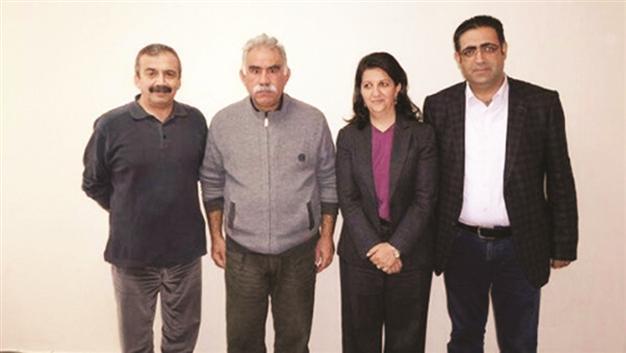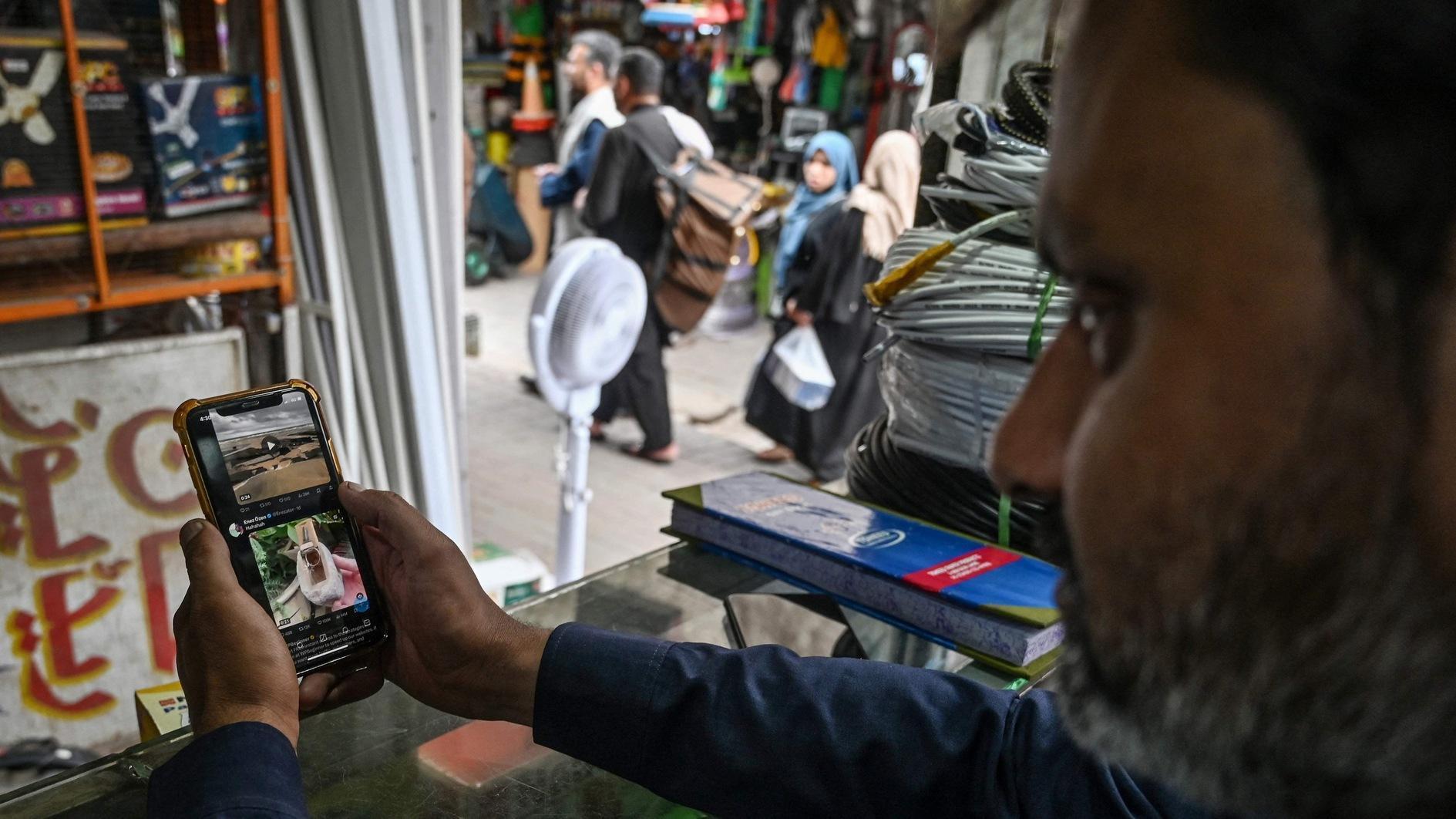Turkish government and PKK talk over ‘reinforced ceasefire’
Murat Yetkin

This file photo shows PKK’s jailed leader Abdullah Öcalan (2L) with BDP lawmakers Sırrı Süreyya Önder (L), Pervin Buldan (2R) and İdris Baluken at İmralı Island Prison.
The Feb. 4 meeting between the Turkish government and the leader of the outlawed Kurdistan Workers’ Party (PKK) at İmralı Island prison, south of Istanbul, was expected to be important regarding the future of the peace talks, as the country heads for general elections on June 7.Both government officials and members of the Kurdish problem-focused Peoples’ Democratic Party (HDP) in parliament wanted to hear something significant from Abdullah Öcalan, the imprisoned leader of the PKK. (HDN, Feb 3, 2015)
The government wanted to hear Öcalan make a call for an end to armed struggle - at least in Turkey, given that PKK fighters are still fighting against the Islamic State of Iraq and the Levant (ISIL) in Iraq and Syria. Deputy Prime Minister Yalçın Akdoğan, who is the contact point in the government for the talks, had said they wanted to see such a statement at the latest by March 21, the annual Nevruz celebrations.
The HDP, meanwhile, wanted to know whether Öcalan still supported its decision to head into the elections under its own name, in order to challenge the unfair 10 percent threshold, taking the risk of being left out of the parliament. Usually, the Kurdish problem-based parties enter elections as a collection of independent candidates before grouping together after the vote.
The understanding about the political equation before the Feb 4 talks was that if Öcalan favored the usual election strategy, it would mean that there is full consensus with the government regarding the roadmap for a political settlement - there would be no need to challenge the government any longer.
There has still been no official announcement about the outcome of the Feb. 4 talks, which were carried out in the presence of the Public Order and Security Directorate (KDGM), headed by Undersecretary Muhammed Dervişoğlu and authorized by Prime Minister Ahmet Davutoğlu and officers from the National Intelligence Organization (MİT). However, sources close to the developments, speaking on condition of anonymity, said the outcome is somewhere in between.
Öcalan did endorse the HDP’s strategy to enter the elections as a party and to challenge the ruling Justice and Development Party (AK Parti), but that does not mean that the talks have ended.
Rather, the government and the PKK are working on a formula called a “reinforced ceasefire.”
This is what that means: There has actually been a de facto ceasefire between the PKK and the government since the start of talks late in 2012. The lack of clashes stopped the bloodshed, which pleased the families of soldiers, police officers and militants, but it did not bring complete peace and public order. That was tested and failed during Oct. 6-8 incidents in southeastern Turkey, in which 40 people were killed in clashes between the PKK and Kurdish Hezbollah supporters.
What’s more, the PKK has started to establish a kind of parallel authority by raising tents and barracks around cities under HDP municipalities running their own police stations, courts, tax offices and recruitment agencies. The recent unrest in Cizre bordering both Syria and Iraq set examples for that situation.
The military and police generally did not intervene in Cizre, upon government orders, in order not to drag the region to an atmosphere of clashes once again. However, those orders have accumulated a particular reaction and strain within government agencies.
A “reinforced ceasefire” would mean the following: 1) Making the ceasefire “official” as part of the negotiations. 2) Putting an end to the PKK’s demonstration of “parallel authority.” 3) Putting an end to its obstruction of safe transportation in the region by blocking roads for “identity checks” or similar reasons. 4) Stopping its destruction of construction sites and targeting of economic activities in the southeast.
If such an announcement is made by Öcalan, the government could take further steps, such as voting for the European Social Charter enabling some administrative and financial autonomy for local administrations, releasing certain prisoners in PKK-related cases and others, shifting to a sort of house arrest for Öcalan, giving him a secretariat (though in İmralı Prison), and similar confidence-building measures.
Now, the HDP delegation members are expected to travel to the PKK’s military headquarters in the Kandil Mountains of Iraq and its diplomatic headquarters in Brussels. They will convey the messages, get feedback, and return to Ankara to talk with the government.
If everything goes well, there could be a joint statement for the first time about a possible roadmap for peace within the next few days.











